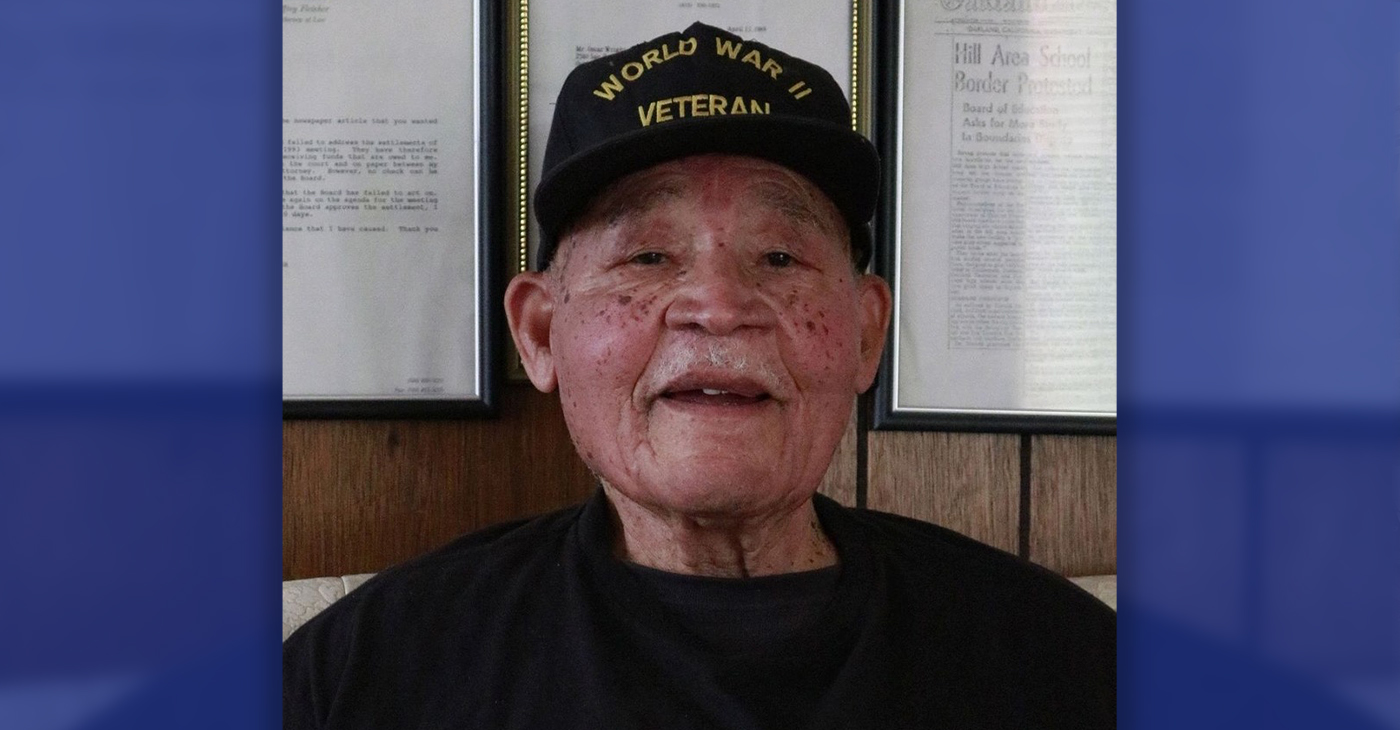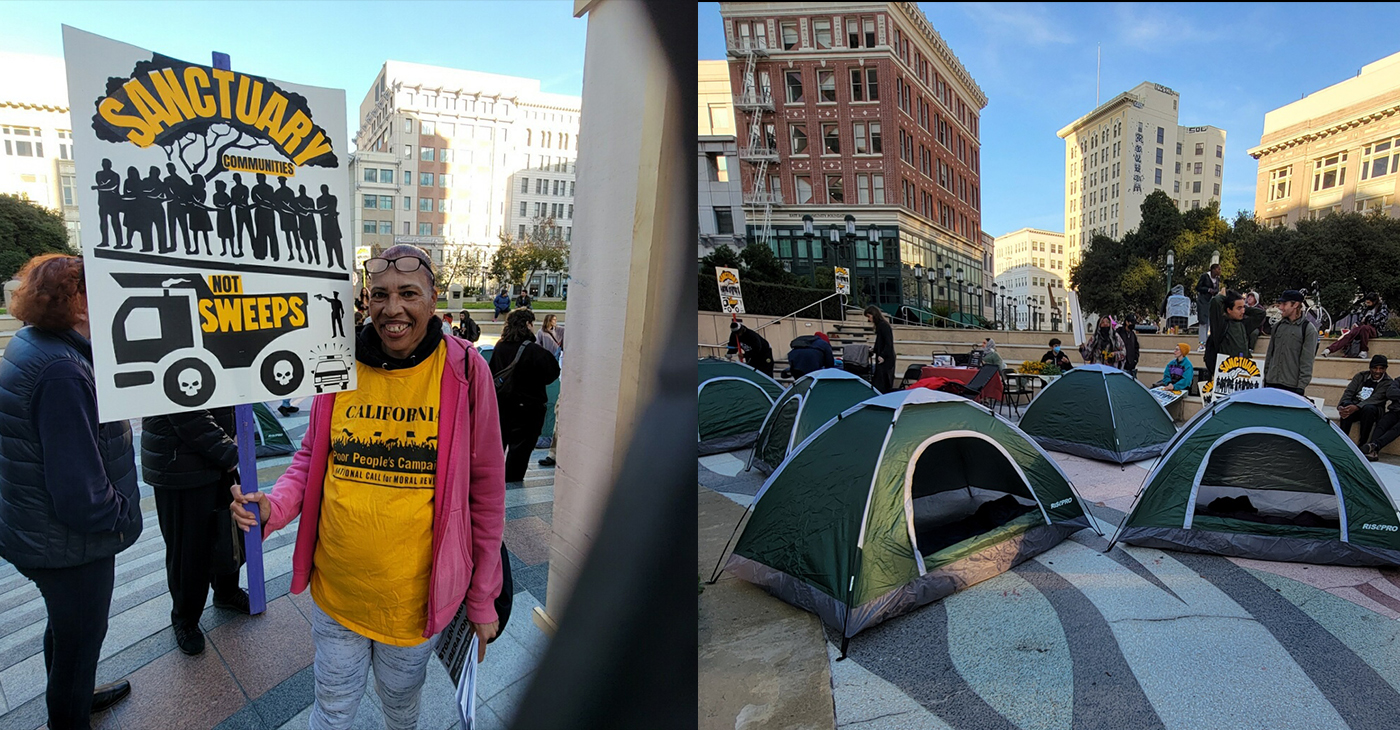Activism
Greater Justice is Coming: Taking on Abusive and Deadly Policing with New DOJ Leadership
And I am not just talking about justice as an idea. I am talking about a Department of Justice that is willing to take on abusive policing and law enforcement agencies that are corrupted by racism.

Thanks to the voters who elected President Joe Biden and Vice President Kamala Harris, we now have a Department of Justice that actually cares about justice.
And I am not just talking about justice as an idea. I am talking about a Department of Justice that is willing to take on abusive policing and law enforcement agencies that are corrupted by racism.
In his first month on the job, U.S. Attorney General Merrick Garland reversed a Trump-era policy that made it harder for the Justice Department to investigate police departments and hold them accountable for violating people’s civil rights.
And he was just getting started. In the past few weeks, the Justice Department has announced that it is starting an investigation of the police departments in Minneapolis—where George Floyd was murdered by former officer Derek Chauvin while other officers watched. The Minnesota AFL-CIO has called the city’s police union a white supremacist-led organization.
The Justice Department has also launched an investigation of policing practices in Louisville, where Breonna Taylor was shot to death in her own home.
These investigations will look at more than those individual killings. This kind of “patterns and practices” investigation looks at the big picture to determine whether and how a law enforcement agency is violating people’s civil rights. They are a way to evaluate—and do something about—the impact that systemic racism has in a police department and the communities it is supposed to serve.
“Patterns and practices” investigations can lead to consent decrees — agreements that require police departments to change the way they operate, with oversight from the Justice Department to make sure change actually happens.
In the past, Justice Department investigations and consent decrees have been important tools for getting violent police behavior under control and changing abusive cultures in out-of-control departments.
When the Trump Administration shut down this kind of investigation, it sent a signal to police departments that the Justice Department would look the other way rather than hold them responsible for misconduct. Of course, Trump himself repeatedly made it clear that he was not opposed to violent policing. In fact, he encouraged it.
Biden has spoken personally about the importance of ending police violence and reimagining public safety. He has called on Congress to pass the imperfect but important George Floyd Justice in Policing Act.
Another good sign was the announcement that the FBI is doing a civil rights investigation of the killing of Andrew Brown, Jr., who was shot in the back of the head by police in Elizabeth City, North Carolina.
All of these are important steps in protecting Americans, especially Black Americans, from abusive policing.
Biden has also spoken out against Republicans’ racist efforts to pass new voting restrictions in states all over the country. Biden has called those efforts “sick” and we can count on his Justice Department to do what they can to challenge voter suppression—even though right-wing justices on the U.S. Supreme Court have greatly weakened the tools that the Voting Rights Act gave the department to prevent Black voters from having their rights denied.
The Justice Department’s Civil Rights Division has just written the Arizona Senate president to raise concerns that a bogus “audit” of ballots from last year’s presidential election that is being conducted by private contractors from the so-called “Stop the Steal” movement could be violating the Voting Rights Act.
There are more signs that we can expect changes at the Justice Department. Associate Attorney General Vanita Gupta, who was recently confirmed by the U.S. Senate, started her career as a civil rights attorney by winning freedom for dozens of mostly Black people wrongly jailed in a small Texas town. And the Senate should soon confirm Kristen Clarke to head the civil rights division, where she started her legal career investigating police conduct, hate crimes, and human trafficking.
Together with Biden and Garland, Gupta and Clarke will save lives, defend civil rights, and give millions of Americans hope that greater justice is coming.
Activism
Oakland Post: Week of December 25 – 31, 2024
The printed Weekly Edition of the Oakland Post: Week of December 25 – 31, 2024

To enlarge your view of this issue, use the slider, magnifying glass icon or full page icon in the lower right corner of the browser window.
Activism
Living His Legacy: The Late Oscar Wright’s “Village” Vows to Inherit Activist’s Commitment to Education
Kingmakers of Oakland (KOO), a nonprofit organization that works to improve educational and life outcomes for Black boys and men, stated that “Oscar Wright is one of the most prolific, consistent, and committed advocates of equity for Black students and Black Families here in Oakland for the past six decades.”

By Antonio Ray Harvey, California Black Media
Activists mourning Oscar Carl Wright’s death, have pledged to continue his lifelong mission of advocating for Black students and families in Northern California.
Wright, 101, who passed away on Nov. 18, was involved in Oakland’s educational affairs until his death.
Now, friends and admirers acknowledge that carrying on his legacy means doubling down on the unfinished work that Wright dedicated his life, time, and resources to, according to Y’Anad Burrell, a family friend and founder of San Francisco-based Glass House Communications (GHC).
“Mr. Wright did a lot of work around equity, specifically, for Black students based on their needs — whether it was tutoring, passing classes, or graduating,” Burrell said.
Wright became a champion for his children’s education, recognizing the disparities between their school experiences and his own upbringing in the Mississippi Delta.
Burrell told California Black Media (CBM) that the crisis of unequal access to resources and a quality education continues to affect the Oakland Unified School District (OUSD).
According to Oakland Reach, in the city of Oakland, only 3 in 10 Black and Brown students are reading at or above grade level. In addition, only 1 in 10 are doing math at or above grade level.
Oakland REACH is a parent-run, parent-led organization. It aims to empowers families from the most underserved communities to demand high-quality schools for their children.
Wright’s work as an activist had impact across the state but he was primarily known in the Bay Area. Alongside the Black United Front for Educational Reform (BUFER), he filed a complaint against OUSD for violating the Civil Rights Act of 1964.
In 2000, the OUSD school board proposed an action plan to address educational inequity, but it was never implemented.
Wright later founded the African American Honor Roll Celebration at Acts Full Gospel Church, an award that recognizes Black students with a grade point average of 3.0 or better. Each year, more than 1,000 students are honored at this ceremony.
Kingmakers of Oakland (KOO), a nonprofit organization that works to improve educational and life outcomes for Black boys and men, stated that “Oscar Wright is one of the most prolific, consistent, and committed advocates of equity for Black students and Black Families here in Oakland for the past six decades.”
Burrell said that one of the main reasons Wright’s work was so essential for families and children in Oakland that is the direct relationship between acquiring a quality education and affording quality housing, maintaining food security, achieving mental wellness, and securing stable employment.
Wright was the child of sharecroppers from Coahoma County, Mississippi. He attended Alcorn State University, a Historically Black College and University (HBCU).
In the late 1950s, Wright and his family relocated to the Bay Area where he worked as a contractor and civil engineer. He later became an active member of the National Association for the Advancement of Colored People (NAACP).
Burrell said the people who will carry on Wright’s work are part of a “village” that includes KOO’s CEO Chris Chatmon. Wright was a mentor to Chatmon.
“It will not be one entity, one person, or one organization that picks up the baton because it was a village effort that worked alongside Mr. Wright for all these years,” Burrell said.
Burell says that legacy will live on.
Activism
Protesters Gather in Oakland, Other City Halls, to Halt Encampment Sweeps
The coordinated protests on Tuesday in San Francisco, Oakland, Vallejo, Fresno, Los Angeles and Seattle, were hosted by Poor Magazine and Wood Street Commons, calling on cities to halt the sweeps and focus instead on building more housing.

By Post Staff
Houseless rights advocates gathered in Oakland, San Francisco, Los Angeles, and other city halls across California and Washington state this week protesting increased sweeps that followed a U.S. Supreme Court decision over the summer.
The coordinated protests on Tuesday in San Francisco, Oakland, Vallejo, Fresno, Los Angeles and Seattle, were hosted by Poor Magazine and Wood Street Commons, calling on cities to halt the sweeps and focus instead on building more housing.
“What we’re dealing with right now is a way to criminalize people who are dealing with poverty, who are not able to afford rent,” said rights advocate Junebug Kealoh, outside San Francisco City Hall.
“When someone is constantly swept, they are just shuffled and things get taken — it’s hard to stay on top of anything,” said Kealoh.
Local houseless advocates include Victoria King, who is a member of the coordinating committee of the California Poor People’s Campaign. She and Dr. Monica Cross co-chair the Laney Poor People’s Campaign.
The demonstrations came after a June Supreme Court ruling expanded local governments’ authority to fine and jail people for sleeping outside, even if no shelter is available. Gov. Gavin Newsom in California followed up with an order directing state agencies to crack down on encampments and urging local governments to do the same.
Fresno, Berkeley and a host of other cities implemented new rules, making it easier for local governments to clear sidewalk camps. In other cities, such as San Francisco, officials more aggressively enforced anti-camping laws already on the books.
-

 Activism4 weeks ago
Activism4 weeks agoOakland Post: Week of November 27 – December 3, 2024
-

 Activism2 weeks ago
Activism2 weeks agoButler, Lee Celebrate Passage of Bill to Honor Congresswoman Shirley Chisholm with Congressional Gold Medal
-

 Activism2 weeks ago
Activism2 weeks agoPost News Group to Host Second Town Hall on Racism, Hate Crimes
-

 Activism2 weeks ago
Activism2 weeks agoDelta Sigma Theta Alumnae Chapters Host World AIDS Day Event
-

 Business2 weeks ago
Business2 weeks agoLandlords Are Using AI to Raise Rents — And California Cities Are Leading the Pushback
-

 Activism3 weeks ago
Activism3 weeks agoOakland Post: Week of December 4 – 10, 2024
-

 Arts and Culture1 week ago
Arts and Culture1 week agoPromise Marks Performs Songs of Etta James in One-Woman Show, “A Sunday Kind of Love” at the Black Repertory Theater in Berkeley
-

 Activism2 weeks ago
Activism2 weeks agoOakland Post: Week of December 11 – 17, 2024




























































